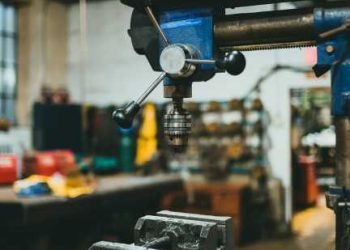In recent years, there has been a significant shift in the manufacturing industry as a result of the emergence of Industry 4.0. This fourth industrial revolution is characterized by the integration of digital technologies and automation into manufacturing processes, leading to increased efficiency, productivity, and flexibility. The impact of Industry 4.0 on manufacturing processes has been profound, transforming the way products are designed, produced, and delivered to customers.
One of the key aspects of Industry 4.0 is the use of advanced technologies such as artificial intelligence, Internet of Things (IoT), robotics, and big data analytics. These technologies have enabled manufacturers to improve their operations in various ways, from streamlining production processes to enhancing quality control and reducing downtime. For instance, IoT sensors can be used to monitor equipment performance in real-time, allowing for predictive maintenance to prevent breakdowns and optimize production schedules.
Automation is another crucial component of Industry 4.0, as it allows for the deployment of robots and machines to perform repetitive and labor-intensive tasks more efficiently than humans. This not only increases productivity but also enhances worker safety by reducing the risk of accidents and exposure to hazardous conditions. Furthermore, automation can enable manufacturers to produce customized products at a faster pace, thanks to the flexibility and scalability of robotic systems.
Big data analytics is another game-changer in Industry 4.0, as it provides manufacturers with valuable insights into their operations and supply chain. By analyzing large volumes of data generated by sensors, machines, and other devices, manufacturers can identify patterns, trends, and inefficiencies in their processes, allowing them to make data-driven decisions to optimize production and reduce costs. For example, predictive analytics can help manufacturers anticipate fluctuations in demand and adjust their inventory levels accordingly to minimize waste and meet customer needs.
Artificial intelligence is also revolutionizing manufacturing processes, as it enables machines to learn from experience and perform tasks that would typically require human intervention. Machine learning algorithms can analyze complex datasets to identify correlations and patterns, enabling manufacturers to optimize their production processes and improve product quality. AI-powered robots can also be used to collaborate with human workers on the factory floor, increasing efficiency and productivity.
Industry 4.0 is not just about the adoption of new technologies; it also involves transforming organizational structures and business models to adapt to the changing landscape of the manufacturing industry. Companies need to invest in training and upskilling their workforce to ensure that employees are equipped with the necessary skills to operate and maintain advanced technologies effectively. They also need to foster a culture of innovation and continuous improvement to drive digital transformation and stay competitive in a rapidly evolving market.
One of the most significant benefits of Industry 4.0 is the potential for increased sustainability in manufacturing processes. By optimizing resource utilization, reducing waste, and minimizing environmental impact, manufacturers can achieve cost savings and enhance their reputation as responsible corporate citizens. For example, IoT-enabled sensors can help monitor energy consumption and water usage in manufacturing facilities, allowing companies to identify opportunities for efficiency improvements and reduce their carbon footprint.
Despite the numerous advantages of Industry 4.0, there are also challenges that manufacturers need to address to fully capitalize on the benefits of this revolution. Cybersecurity is a major concern, as interconnected devices and systems create vulnerabilities that could be exploited by hackers to disrupt operations or steal sensitive data. Manufacturers need to implement robust cybersecurity measures to protect their digital assets and ensure the integrity of their operations.
Another challenge is the potential impact of automation on the workforce, as the deployment of robots and AI systems could lead to job displacement and create a skills gap in the manufacturing sector. Companies need to invest in reskilling and upskilling programs to help employees transition to new roles that require human ingenuity and creativity, which machines cannot replicate. By investing in their workforce and nurturing a culture of lifelong learning, manufacturers can ensure that their employees remain valuable assets in an increasingly digitalized and automated environment.
In conclusion, Industry 4.0 is revolutionizing manufacturing processes by leveraging advanced technologies to improve efficiency, productivity, and sustainability. By embracing digital transformation and adopting a holistic approach to incorporating new technologies into their operations, manufacturers can achieve significant competitive advantages and drive innovation in the industry. However, to fully realize the potential of Industry 4.0, companies need to address challenges such as cybersecurity, workforce development, and organizational change to ensure a successful transition to the future of manufacturing.












